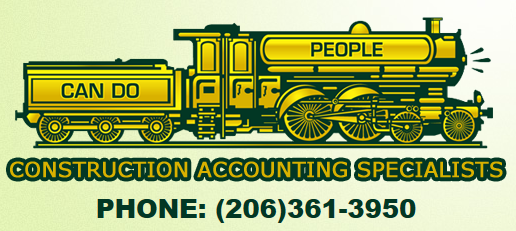Implementing an effective payroll system is crucial for construction business owners, as it directly impacts project management, employee satisfaction, and overall financial health. Given the complexities of the construction industry, including varying pay rates, overtime requirements, and the need for certified payroll reports, developing a streamlined payroll process is essential.
Here are some steps to consider:
1. Determine Payroll Needs:
- Assess the size of your workforce (hourly vs. salaried employees).
- Identify the types of workers (e.g., subcontractors, full-time employees) and ensure your payroll system can handle various pay rates and classifications.
2. Choose the Right Payroll Software:
- Look for software that caters to the construction industry's needs, including support for job costing, lien waivers, and compliance with prevailing wage laws.
- Ensure it has features for tracking time worked, overtime, and benefits.
Read More
Topics:
Payroll Processing,
Payroll Tax,
Payroll Options,
Systems And Processes,
Systems,
Payroll For Construction Contractors
Long-standing customers form the backbone of a robust and well-established business. Make it your mission to ensure that most of your current customers stay with your company for many years.
Understanding the High-Profit Client
Most of them have personality traits commonly known as drivers. Folks accustomed to getting things done quickly and efficiently do not mind paying professionals for servicing, repairing, remodeling, or building new construction projects related to their houses and commercial buildings.
Why it's vital to keep existing customers
Your current customers already have personal experiences dealing with your business and using its services. You won't need to spend much time, money, and energy convincing them to continue hiring you.
Read More
Topics:
Payroll Loan,
Payroll Processing,
Payroll Tax,
Payroll Options,
Construction Bookkeeping And Accounting,
Contractor Tips,
Payroll For Construction Contractors
There are a few different methods that employers use to pay their employees, and while they may have similarities, they each also have implications for your construction business and employees. On top of that, there may be a blended model at play, in which you offer two types of compensation at once, such as a wage and bonuses.
When paying employees, laws and the IRS have made the payroll function a time-consuming nightmare for the small business owner.
Small business owners spend an average of eight hours monthly performing payroll functions. That's 12 full business days a year that could be spent generating sales, prospecting for new business opportunities, improving products or services, or servicing customers.
Read More
Topics:
Payroll Loan,
Payroll Processing,
Payroll Tax,
Payroll Options,
Construction Bookkeeping And Accounting,
Contractor Tips,
Payroll For Construction Contractors
Payroll is one of those things that starts quite simple. You build your construction business, hire a few employees, and things tick along pretty well. It’s straightforward enough to keep everything in line at first, but what happens to most companies is that they grow!
However, having an employee is different than when it’s just you meeting the client, doing the work, and collecting the money. The dynamics change when you hire that outside person. You need to be even more cautious when considering hiring a friend or family member instead of a stranger because success has a thousand fathers while failure is an orphan! Success or failure could mean choosing between peace and harmony in your personal relationships or giving away a portion of your hard-earned fruit.
Read More
Topics:
Payroll Loan,
Payroll Processing,
Payroll Tax,
Payroll Options,
Construction Bookkeeping And Accounting,
Contractor Tips,
Payroll For Construction Contractors





































